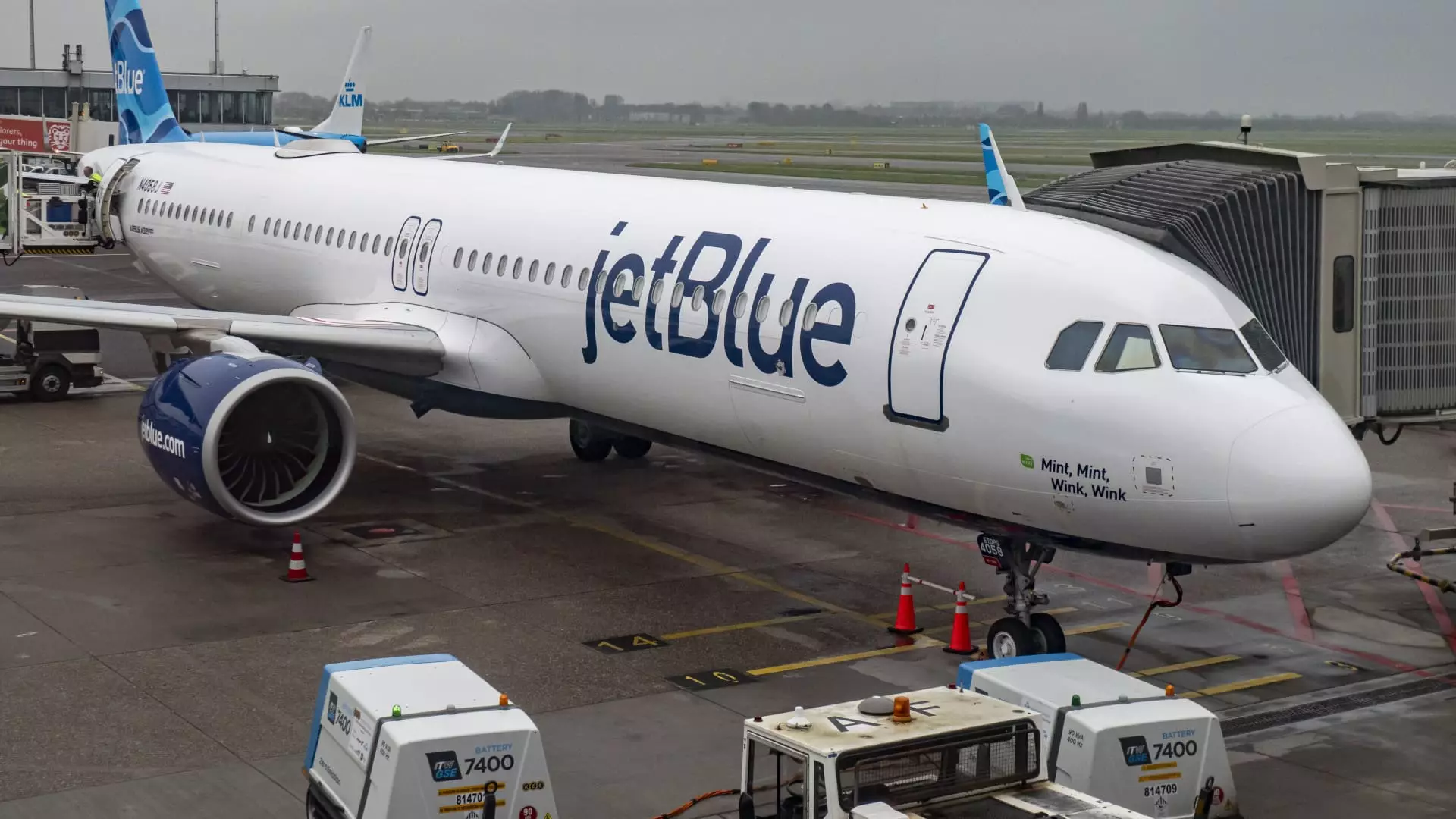In a significant restructuring initiative, JetBlue Airways has announced substantial changes to its flight operations in a bid to enhance profitability and streamline costs. Following a staff notification on Wednesday, the carrier revealed a strategy that involves cutting unprofitable routes and reallocating resources to better meet market demand. This move represents a calculated response to the evolving aviation landscape, particularly in the aftermath of the COVID-19 pandemic, which has altered travel patterns and consumer behavior.
As part of this realignment, JetBlue is set to eliminate several routes that have not performed well financially. Flights from Fort Lauderdale to Jacksonville and from New York’s JFK Airport to Austin, Houston, Miami, and Milwaukee will be discontinued. Additionally, the airline will suspend its services to San Jose, California, and transition away from utilizing its Mint business class service on flights from Seattle. JetBlue’s decision to cut back on some of its offerings, particularly in the competitive Miami market, illustrates the challenges posed by larger legacy carriers that dominate specific routes.
Despite its previous strengths in the Florida market, JetBlue is confronting challenges in Miami, primarily due to strong competition from established airlines like American and Delta. Dave Jehn, JetBlue’s vice president of network planning, acknowledged that while Florida remains an essential market, the airline has struggled to maintain profitability in Miami post-pandemic. Changes in staffing dynamics are also in play, as the airline works to balance crew deployments amid these route cuts, offering alternative positions for affected employees.
While JetBlue curtails certain domestic routes, it is simultaneously looking to adapt and expand its international service. The airline is set to unveil new European routes in the coming week, which are expected to align with JetBlue’s aims of tapping into high-demand international markets. However, the decision to scale back its JFK-Paris connections and suspend summer flights to London’s Gatwick Airport signifies a cautious approach amid fluctuating demand.
Following announcements of these adjustments, JetBlue reported better-than-anticipated revenue and booking figures for November and December, resulting in a spike in share prices. The airline’s leadership, under CEO Joanna Geraghty, remains focused on implementing cost-cutting measures and culling underperforming routes, especially as it addresses the operational hurdles arising from Pratt & Whitney engine issues. JetBlue’s efforts to pivot toward high-demand markets signal a commitment to long-term stability, adapting to a marketplace that continues to evolve.
JetBlue Airways’ recent announcements reflect a strategic response to shifting demand and competitive pressures in the airline industry. By streamlining operations and re-evaluating route viability, the carrier aims to bolster its financial health while maintaining a customer-centered approach. As JetBlue progresses into 2025, its ability to adapt and innovate will be crucial in navigating the complexities of modern air travel.


Leave a Reply